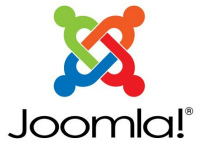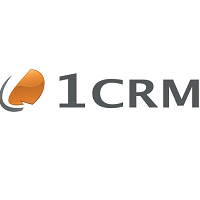
What is Joomla and how does it work?
Joomla! is a powerful open-source content management system (CMS) designed for building dynamic websites, web portals, and online applications. Written in PHP and powered by MySQL or other databases, it provides a flexible, modular structure that suits both small personal blogs and large corporate platforms.
Since its release in 2005, Joomla has become one of the most popular CMSs worldwide, known for its balance between ease of use and deep customization. It’s completely free under the GNU General Public License, meaning users can modify and extend it to meet their unique requirements.
Whether you’re creating a multilingual business website, an e-commerce store, or an intranet portal, Joomla’s combination of templates, extensions, and strong community support allows developers and non-technical users alike to maintain and expand their sites without starting from scratch.
What are the key features of Joomla?
-
Modular Architecture: Joomla is built around a component-module-plugin structure, allowing you to add or remove features without affecting the core system. You can customize layouts, menus, and functionalities with minimal coding.
-
Powerful Content Management: Manage articles, categories, media, and menus through an intuitive admin dashboard. Access control levels make it ideal for multi-author environments.
-
Multilingual Support: Joomla natively supports dozens of languages, allowing businesses to reach global audiences without third-party plugins.
-
Extensions and Templates: Thousands of free and paid extensions exist in the Joomla Extensions Directory — covering e-commerce, forums, galleries, SEO, and analytics. Templates let you control both front-end design and admin appearance.
-
Built-in SEO Tools: Joomla offers meta-tag management, SEF (search engine friendly) URLs, and breadcrumb navigation to optimize site visibility on search engines.
-
User Management and Access Control: Advanced permission settings let you define user groups, access levels, and workflow rules for editors, authors, and administrators.
-
Security Framework: Joomla integrates features such as two-factor authentication, CAPTCHA, and session management to minimize common vulnerabilities.
-
Developer-Friendly Framework: With its MVC (Model-View-Controller) design, Joomla allows developers to build powerful custom extensions and integrations quickly.
What are the main use cases of Joomla?
-
Corporate Websites and Portals: Companies use Joomla to build structured, multi-departmental websites that integrate news sections, client areas, and internal tools.
-
E-commerce Stores: With extensions like VirtueMart or HikaShop, Joomla becomes a fully functional online store supporting inventory, checkout, and payment gateways.
-
Educational Institutions: Schools and universities create portals for students, teachers, and administrators with layered access control and content segmentation.
-
Community and Membership Sites: Joomla’s user group system and forums allow you to create communities, subscription models, or private member zones.
-
Government and Nonprofit Websites: Joomla’s multilingual support and accessibility compliance make it suitable for public sector communication and NGO websites.
-
Blogs and Personal Sites: Content scheduling, templates, and tagging features help individuals manage personal blogs with professional structure and SEO efficiency.
What are the main benefits of Joomla?
-
Scalability and Flexibility: Joomla can evolve from a basic site into a large-scale platform with multiple integrations, without requiring migration to a new CMS.
-
Open Source Freedom: No license fees or vendor lock-in. You retain full ownership and control of your website’s code and data.
-
Large Global Community: Thousands of developers, designers, and users contribute to ongoing innovation, security updates, and support forums.
-
High Customization Potential: From backend workflows to frontend layouts, Joomla provides granular control through overrides and custom modules.
-
Strong Security Reputation: Regular updates and a dedicated security team ensure timely patches and transparent vulnerability reporting.
-
SEO-Ready Out of the Box: Unlike many CMS platforms that rely on plugins for SEO, Joomla’s built-in features help sites rank faster with less overhead.
-
Cost-Effective Development: Since most functionality can be implemented through free extensions or templates, Joomla drastically reduces total cost of ownership.
How is the Joomla user experience?
Joomla’s interface strikes a balance between power and usability. The admin dashboard is clean, logically structured, and responsive, supporting modern browsers and mobile devices. Even beginners can publish articles, add media, or manage menus with minimal training.
For developers, the MVC framework and template override system provide complete creative control without editing the core code. Advanced users can leverage command-line tools, API integrations, and multilingual content workflows.
Updates are straightforward, performed directly from the admin panel. Backup and migration extensions simplify maintenance, while active forums and documentation ensure constant learning opportunities.
In real-world use, Joomla’s UX feels professional and structured — more configurable than WordPress but less rigid than Drupal. It rewards users who want to build something scalable, organized, and future-proof rather than a quick one-page site.
Why choose Joomla in 2025 and beyond?
Joomla remains one of the most balanced open-source CMS platforms — flexible enough for developers, yet intuitive enough for content managers. Its architecture supports long-term projects that demand modular growth, multilingual structure, and strong data ownership.
In an era dominated by SaaS site builders, Joomla stands out as a self-hosted, privacy-respecting alternative that lets you control every layer of your digital presence. For businesses and creators who value independence and scalability, Joomla continues to be a smart, future-ready choice.
Joomla Reviews & Demos
Joomla. Implementation & Enablement
Are you an Implementation Partner
This platform doesn’t offer implementation services directly.
Businesses work with independent Implementation Partners for setup, integrations, customization, consulting, and ongoing support.
If you help clients implement or extend this platform, you can list your expertise here and get discovered by teams looking for help.
Add your Implementation Services















